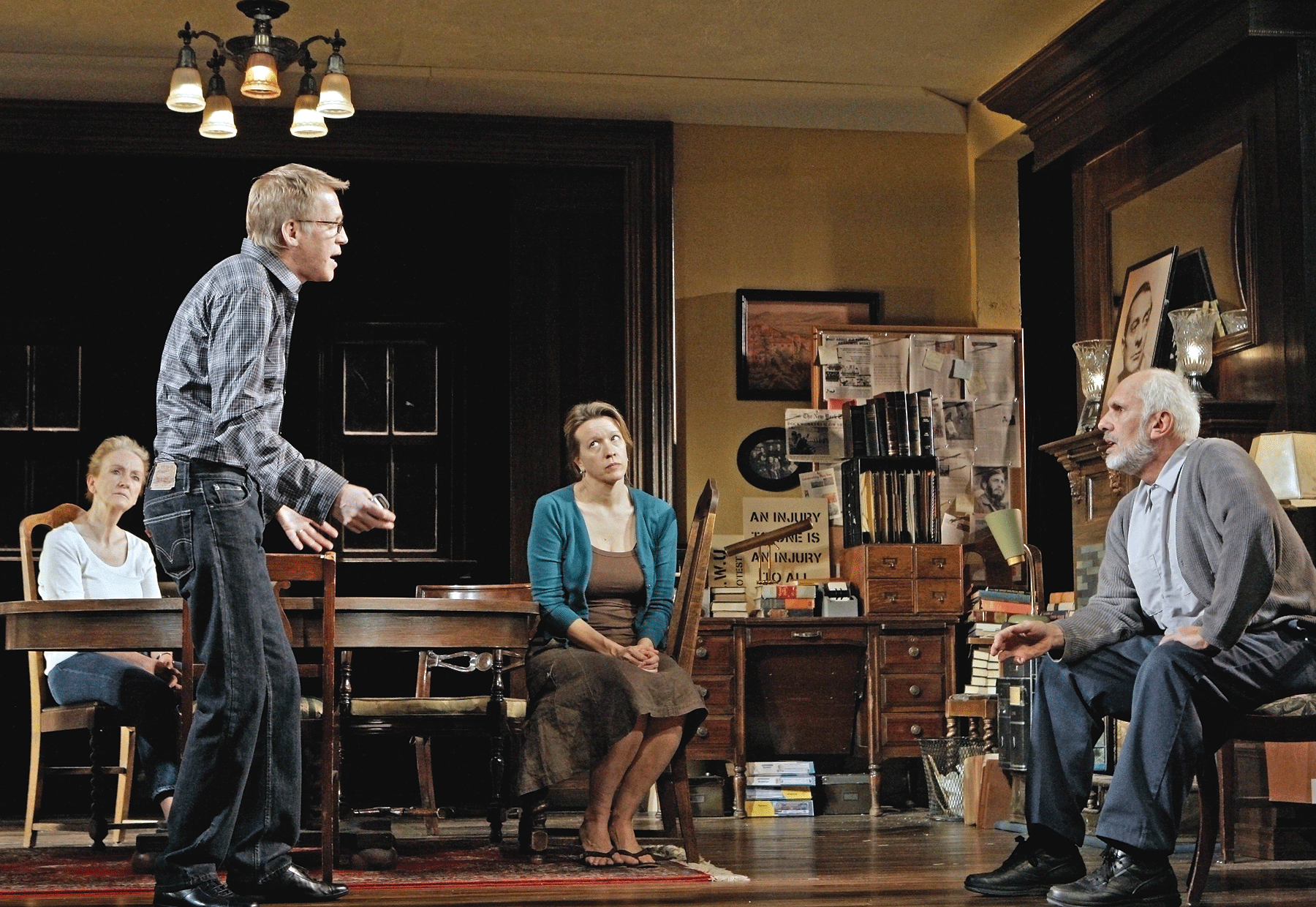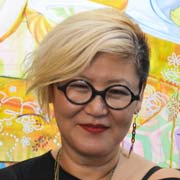
Yes, that is the title of the latest Tony Kushner play that I saw last Friday at the Public Theater (in co-production with Signature Theater Company, in part of their season long Kushner retrospective / celebration). The play, which explores politics, marriage, sex, radicalism, real estate and the labor movement under the roof of a retired longshoreman’s Brooklyn (Cobble Hill to be more exact) brownstone, was first produced under a commission from the Guthrie Theater in Minneapolis and directed by Michael Greif featuring many theater veterans such as Michael Cristofer, Linda Emond, Michael Esper, K. Todd Freeman, Hettienne Park, Steven Pasquale, Molly Price, Matt Servitto, Danielle Skraastad, Stephen Spinella, and Brenda Wehle.
Like its unwieldy title, the play is long (almost 4 hours including two intermissions), dense, challenging, smart, timely and exhilarating (especially compared to anything currently on view anywhere on stage in NY). At times, the characters are exacerbatingly cliched ideological cardboards (on top of it, you often feel so stupid about your own ignorance thanks to the breadth of the topic covered in this play), but most of the times, Kushner’s characters are humane, smart, grandiose and sentimental all at the same time. All the actors in this large cast are outstanding, but Michael Cristofer, who plays the aging, suicidal, retired longshoreman labor leader patriarch and whose character is a unique combination of working class New York grit and Latin (Marcus Aurelius) quoting intellectual, is amazing in conveying the disappointment and the determination of an aging leftie activist in our challenging era of Bush and Obama. It was refreshing and exhilarating to hear the opening passages of Das Kapital quoted verbatim (both in Italian and in English) in this era of left-wing intellectual cowardice (where did the idealism vanish?) It was also touching to see Stephen Spinella, an original Broadway cast in Angels in America, on stage again in another Kushner play.
Mr. Kushner said in an article in New York times that “[t]his work adheres to Aristotlean unity more than anything I’ve ever done – it’s not short episodic scenes, but long scenes set in the same location in Brooklyn….I think by nature I’m an epic writer rather than an Aristotlean, well-made play writer, but I feel the thing that’s exciting to me about this work is finding ways to do both in the space of an evening that people can sit through to deal with large concerns.” Here’s hoping that he will write many more plays like this one to challenge us to think the big picture.
 Kira Nam Greene’s work explores female sexuality, desire and control through figure and food still-life paintings, surrounded by complex patterns. Imbuing the feminist legacies of Pattern and Decoration Movement with transnational, multicultural motifs, Greene creates colorful paintings that are unique combinations of realism and abstraction, employing diverse media such as oil, acrylic, gouache, watercolor and colored pencil. Combining Pop Art tropes and transnationalism, she also examines the politics of food through the depiction of brand name food products, or junk food. Recently, Greene started a figurative painting series spurred by the 2016 Presidential Election, Women’s March, #metoo movement and ensuing crisis of conscience, this new body of work aspires to present the power of collective action by women.
Kira Nam Greene’s work explores female sexuality, desire and control through figure and food still-life paintings, surrounded by complex patterns. Imbuing the feminist legacies of Pattern and Decoration Movement with transnational, multicultural motifs, Greene creates colorful paintings that are unique combinations of realism and abstraction, employing diverse media such as oil, acrylic, gouache, watercolor and colored pencil. Combining Pop Art tropes and transnationalism, she also examines the politics of food through the depiction of brand name food products, or junk food. Recently, Greene started a figurative painting series spurred by the 2016 Presidential Election, Women’s March, #metoo movement and ensuing crisis of conscience, this new body of work aspires to present the power of collective action by women.